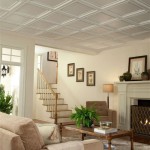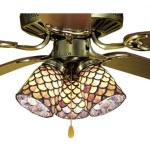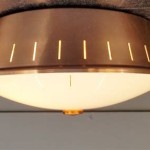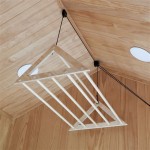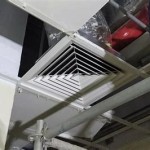Everything You Need To Know About Plank Ceiling Tiles in Ghana
Plank ceiling tiles have become a popular choice for both residential and commercial spaces in Ghana, offering a blend of aesthetic appeal, functionality, and affordability. These tiles provide a versatile solution for creating visually appealing ceilings while also offering practical benefits such as sound absorption, insulation, and ease of installation. This article will delve into the various aspects of plank ceiling tiles in Ghana, covering their types, benefits, installation process, maintenance, cost considerations, and factors to consider when selecting the right tiles for a specific project.
Types of Plank Ceiling Tiles Available in Ghana
The Ghanaian market offers a diverse range of plank ceiling tiles, catering to various design preferences and budgetary constraints. Understanding the different types is crucial for making an informed decision.
PVC Plank Ceiling Tiles: These are perhaps the most common type of plank ceiling tiles found in Ghana. They are made from polyvinyl chloride (PVC), a durable and waterproof plastic material. PVC tiles are lightweight, easy to install, and resistant to moisture, making them ideal for areas with high humidity, such as bathrooms and kitchens. They are also available in a wide variety of colors, patterns, and finishes, including wood-grain effects.
Mineral Fiber Plank Ceiling Tiles: Mineral fiber tiles are composed of mineral wool, starch, and other binder materials. They are known for their excellent sound absorption properties, making them suitable for offices, classrooms, and other spaces where noise control is important. Mineral fiber tiles are also fire-resistant, contributing to the overall safety of the building. They typically have a textured surface and are available in a range of sizes.
Gypsum Plank Ceiling Tiles: Gypsum tiles are made from gypsum plasterboard, a widely used building material. They offer a smooth and paintable surface, allowing for greater design flexibility. Gypsum tiles are also fire-resistant and can provide good thermal insulation. They are generally heavier than PVC tiles and may require a more robust suspension system.
Wooden Plank Ceiling Tiles: While less common than PVC or mineral fiber, wooden plank ceiling tiles offer a natural and sophisticated aesthetic. They can be made from solid wood or engineered wood products. Wooden tiles provide excellent insulation and can enhance the acoustics of a room. However, they are typically more expensive and require more maintenance than other types of plank ceiling tiles.
Aluminum Plank Ceiling Tiles: Aluminum plank ceiling tiles are known for their durability, corrosion resistance, and aesthetic appeal. They are often used in commercial and industrial settings, as well as in modern residential designs. Aluminum tiles are available in a variety of colors, finishes, and perforation patterns. They are relatively lightweight and easy to install.
Benefits of Using Plank Ceiling Tiles
The popularity of plank ceiling tiles in Ghana stems from their numerous benefits, making them a practical and aesthetically pleasing choice for various applications.
Aesthetic Appeal: Plank ceiling tiles offer a clean and modern look that can enhance the overall appearance of a space. They are available in a wide range of colors, textures, and patterns, allowing for customization to suit different design styles. The linear design of plank tiles can create a sense of spaciousness and visual interest.
Sound Absorption: Certain types of plank ceiling tiles, such as mineral fiber tiles, offer excellent sound absorption properties. This can help to reduce noise levels and improve acoustics in offices, classrooms, and other environments where noise control is important. Sound absorption is particularly beneficial in open-plan spaces where noise can be disruptive.
Thermal Insulation: Plank ceiling tiles can contribute to thermal insulation, helping to regulate the temperature inside a building. This can reduce energy consumption by minimizing the need for heating and cooling. Gypsum and wooden tiles, in particular, offer good thermal insulation properties.
Ease of Installation: Plank ceiling tiles are relatively easy to install, especially PVC tiles. They can be installed using a suspension system or directly attached to the existing ceiling. The ease of installation can save time and labor costs. Many DIY enthusiasts can install plank ceiling tiles themselves with the right tools and guidance.
Durability and Longevity: Plank ceiling tiles are generally durable and long-lasting, especially PVC and aluminum tiles. They are resistant to moisture, pests, and other environmental factors that can damage other types of ceilings. This can result in lower maintenance costs over time.
Fire Resistance: Many plank ceiling tiles, such as mineral fiber and gypsum tiles, are fire-resistant. This can help to slow the spread of fire and provide valuable time for evacuation in the event of a fire. Fire-resistant ceiling tiles are often required in commercial buildings to comply with building codes.
Affordability: Plank ceiling tiles are often more affordable than other ceiling options, such as suspended ceilings or plaster ceilings. This makes them a popular choice for budget-conscious projects. PVC tiles, in particular, are known for their affordability.
Easy Maintenance: Plank ceiling tiles are easy to clean and maintain. They can be wiped down with a damp cloth to remove dust and dirt. Some types of tiles are also stain-resistant, making them suitable for areas where there is a risk of spills.
Installation Process of Plank Ceiling Tiles
Proper installation is crucial to ensure the longevity and performance of plank ceiling tiles. The installation process may vary depending on the type of tile and the specific application, but some general steps are common.
Preparation: The first step is to prepare the ceiling surface. This may involve cleaning the existing ceiling, repairing any damage, and ensuring that the surface is level and free of obstructions. It is also important to determine the desired height of the new ceiling and mark the perimeter accordingly.
Suspension System (if applicable): For suspended ceilings, a suspension system is installed to support the tiles. This typically consists of a grid of metal channels that are hung from the existing ceiling using wires or hangers. The grid must be level and properly spaced to ensure that the tiles fit correctly.
Tile Installation: The plank ceiling tiles are then installed into the suspension system or directly attached to the existing ceiling, depending on the type of installation. For suspended ceilings, the tiles are simply placed into the grid. For direct attachment, the tiles may be glued or screwed to the ceiling surface.
Cutting and Fitting: It may be necessary to cut the tiles to fit around corners, pipes, or other obstructions. This can be done using a utility knife, saw, or other appropriate cutting tool. It is important to measure accurately and cut carefully to ensure a neat and professional finish.
Finishing Touches: Once the tiles are installed, any gaps or seams can be filled with sealant or caulk. This will help to create a smooth and seamless surface. The ceiling can then be painted or finished as desired.
It's often advisable to hire a professional installer, particularly for complex installations or large-scale projects. A professional installer will have the experience and expertise to ensure that the tiles are installed correctly and efficiently.
Factors such as room size, ceiling height and the complexity of the installation can influence the overall installation time. It's always wise to discuss these factors with the installer before commencing the project.
Safety precautions are of utmost importance during installation. Always wear appropriate safety gear, including gloves, eye protection, and a dust mask. Ensure the work area is well-ventilated and free of hazards. Dispose of waste materials properly.
Understanding the manufacturer's instructions is also critical. Each type of plank ceiling tile may have specific installation requirements. Carefully read and follow the manufacturer's instructions to ensure that the tiles are installed correctly and to avoid voiding any warranties.
Properly aligned tiles are visually appealing. Take the time to align the tiles carefully to ensure a uniform and professional appearance. Use a level to check that the tiles are straight and evenly spaced.

Ghana Pvc Ceiling Panels 9mm Wall Wood Plank

Ghana Pvc Ceiling Panels 9mm Wall Wood Plank Panel Es Made In China Com

Ghana Pvc Ceiling Panels 9mm Wall Wood Plank Panel Es Made In China Com

Types Of Suspended Ceilings Acoustic Ceiling Tiles

High Gloss Soundproof Pvc Ceiling Panels 6m Wpc Panel Ceilings For Ghana Made In China Com

Ghana Pvc Ceiling Panels 9mm Wall Wood Plank Panel Es Made In China Com

Ceilume Ceiling Tiles Acoustic Plasterboard Pop Accessories Vony Ghana Limited

Buy 3 4kg M2 Weight Ghana Plastic T G Pvc Ceiling Panel From Guangzhou Titan Commercial Co Ltd Stan Tradewheel Com

T G Interplast

7 Benefits Of Using Plywood For Your Ceiling Fa Mitc
Related Posts


